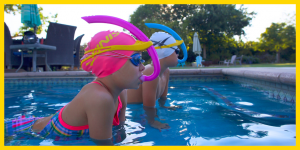Elizabeth Wickham, SwimSwam
September 25, 2019
Here are five things I learned at college orientation with my daughter that I found worthwhile. At the time, I thought I knew everything because I’d gone through orientation a few years earlier with my son. But after listening to the talk called “Supporting your College Student” presented by Dr. Kari Ellingson, Associate Vice President, Student Development, at the University of Utah, I wished I’d heard her advice before I sent my first child to college.
With kids swimming in college, they will have a built in team and group of kids to fend off loneliness that many non-athletes experience. Swim practice, weights and homework will add structure to their days. Going to practice is a familiar activity that they will welcome.
Whether or not your kids swim in college, these five tips may be helpful:
ONE
Children go through changes. But, if it’s your first child going to college, or your last, you will be going through changes, too. We will be changing our relationship from parent to child to adult to adult. We’ll go through transitions, pushing our children away and holding them close.
TWO
A student who works 10 to 15 hours on campus will do better in school than someone who works off campus, or doesn’t work at all. Students working on campus are making connections with the campus, student, and staff, Ellingson said. I think we can equate our kids’ swimming to having a job. Our kids will make those connections through their teammates, coaches, support staff and representing their school.
THREE
Cell phones according to Dr. Ellingson, are “the world’s longest umbilical cords.” Some students call home five, six, seven times a day. In our day, we waited in line for the phone down the hall on Sundays — when long distance was cheaper — and horror of all horrors — there wasn’t such a thing as a cell phone!
Don’t let your child’s crisis become your crisis. Ellingson’s
example was a daughter who called her mom and said, “I flunked my midterm. The professor hates me…” After consoling her crying daughter, the mother called back later with more advice. The daughter was like, “Huh? What are you talking about? Everything’s fine.” Often when our kids call, they want to vent. They don’t want us to problem solve.
FOUR
They are learning to become themselves. They will be grieving and letting go of high school friendships, but will build new and deeper ones in college. A main developmental issue is finding their identity. Their core stays the same, which has been developing over the past 18 years. But, how they express themselves changes.
They may try on new identities by copying new friends to see how it fits or feels. You may say to yourself, and hopefully not to your child, “Who the heck is this?” Then you meet their new friend, and say to yourself, “Oh, now I see who this is!”
Intellectually they are still developing. They see things differently than before. They love to debate. They will try debating skills, or how to express themselves by choosing opinions contrary to ours, even if it isn’t what they truly believe.
FIVE
Dr. Ellingson talked about independence: “Their first steps as a toddler are towards you. Every step after that is running away from you.” They need to discover how to be on their own — and this is one of their fears. Delayed maturation is common. It used to be people matured around 19, 20, 21. Today it’s 26, 27 or 28. They will say to you “Leave me alone!” Then, “bail me out!” This is normal. The pendulum swings back and forth. Just remember to love them, guide them, but let them figure it out. The more we solve their problems, the more we delay their growth into independent, responsible adults.
Read the original article here
Recent Articles
Dylan Carter
Chelsea Hodges
Lorenzo Zazzeri

Introducing the Stability Snorkel Jr
Share on Social Media


